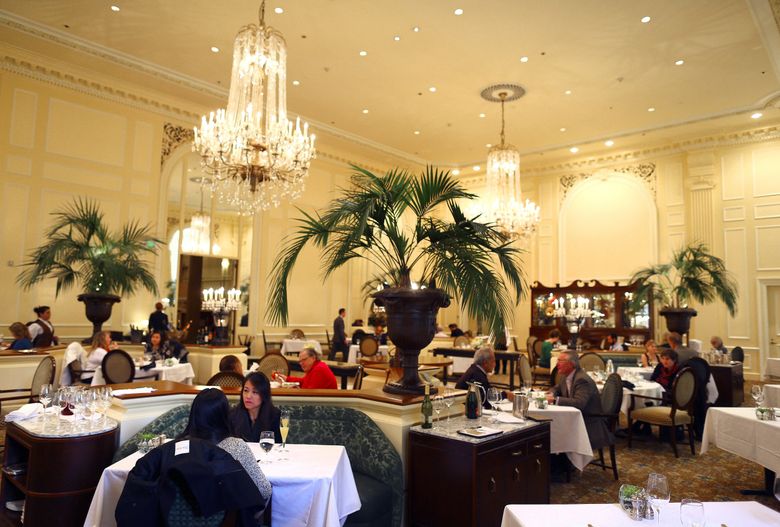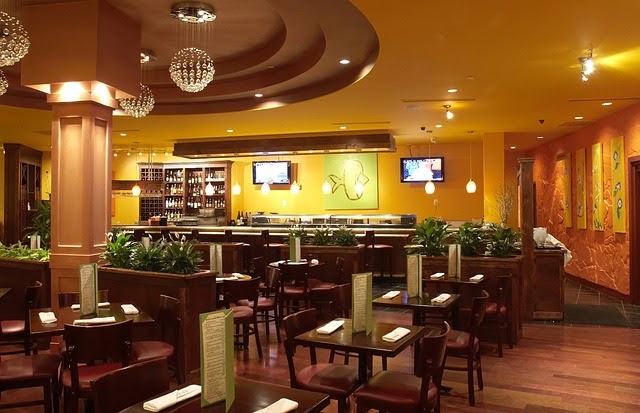Instagrammable Restaurants Islamabad: Picture-Perfect Dining Experiences
Instagrammable Restaurants Islamabad: Picture-Perfect Dining Experiences
Blog Article
Savor Authentic Eastern Food With a Pan-Asian Spin for a Cooking Adventure
Beginning on a culinary trip through genuine Eastern cuisine, improved with a Pan-Asian twist, supplies a distinct chance to explore the rich tapestry of tastes that define the area's varied culinary traditions. As you contemplate these attracting meals, consider the social narratives and historical influences that form them, each bite providing a story waiting to be discovered. Instagrammable restaurants Islamabad.

Discovering Pan-Asian Tastes
In the realm of international gastronomy, Pan-Asian cuisine sticks out for its amazing variety and the harmonious interaction of tastes from different Oriental cultures. This cooking strategy celebrates the unique ingredients and abundant traditions found throughout the continent, creating a tapestry of tastes that is both intriguing and rewarding. Key to Pan-Asian cuisine is its capability to balance different flavors-- wonderful, salted, spicy, and sour-- while highlighting the quality and high quality of each component.
From the umami-rich soy sauce of Japan to the intense chili peppers of Thailand, Pan-Asian cuisine offers an extensive palette of tastes. These elements are commonly incorporated in innovative ways, improving meals with layers of intricacy. For example, the use of aromatic natural herbs such as lemongrass and cilantro, usual in Vietnamese and Thai cuisine, includes a rejuvenating brightness to meals, while the unification of coconut milk provides a velvety, abundant appearance.
The focus on fresh fruit and vegetables and fragrant spices ensures that each dish is not just a feast for the palate yet also for the senses. Pan-Asian cuisine welcomes restaurants to get started on a culinary trip, checking out the substantial and differed landscapes of Asian gastronomy with every bite.
Fusion Dishes to Attempt
While Pan-Asian food is celebrated for its conventional tastes, the contemporary culinary landscape is progressively embracing blend meals that mix these classic aspects with influences from various other areas. This ingenious strategy not just honors the abundant heritage of Asian cookeries but likewise presents novel taste experiences that interest contemporary tastes buds.
A prime instance of such a combination recipe is the Korean-Mexican taco, where marinated bulgogi beef is wrapped in a cozy tortilla, topped with kimchi and a hot gochujang-infused salsa. This mix weds the bold, full-flavored flavors of Korea with the lively, fresh components of Mexican cuisine. In a similar way, sushi burritos have gained popularity, joining together the fragile virtuosity of Japanese sushi with the hearty, hand-held ease of a burrito, typically including blend components like tempura shrimp and avocado with a drizzle of wasabi mayo.
Another noteworthy dish is Thai curry ramen, which instills the creamy, aromatic flavors of Thai curry into the reassuring broth of standard Japanese ramen, creating a harmonious mix that tantalizes the senses. These combination meals extend beyond mere novelty; they represent a culinary dialogue in between societies, encouraging expedition and technology worldwide of Pan-Asian food.
Essential Components and Flavors
To genuinely value Pan-Asian cuisine, one must understand the essential ingredients and seasonings that develop its foundation. This varied cooking style attracts from an abundant tapestry of Oriental traditions, using a harmonious mix of flavors and structures.
Aromatic aspects are crucial, with lemongrass, garlic, and ginger being ubiquitous throughout different Pan-Asian recipes. These active ingredients supply an aromatic base that boosts the intricacy of tastes. Spices such as celebrity anise, cardamom, and cinnamon introduce warmth and personality, echoing impacts from areas like China and India.

Cooking Methods and Tips
Mastering the art of Pan-Asian food calls for experience with its unique food preparation techniques, each adding to the dynamic tapestry of flavors this cooking practice is commemorated for. Central to these approaches is the stir-fry, a rapid cooking technique that preserves the nutritional stability and brilliant shades of active ingredients. Making use of a frying pan, the stir-fry method allows for even warm circulation, essential for achieving the characteristic texture and flavor balance of Pan-Asian dishes.
Another basic technique is steaming, specifically prevalent in Chinese cuisine. This gentle method preserves the natural flavors and nutrients of components, making it perfect for seafood and veggies. Dumplings, a cherished staple, typically take advantage of steaming, causing soft, delicious appearances.
Cooking, also integral, gives smoky depths to dishes such as Korean bulgogi or Japanese yakitori (asian fusion restaurant). This method typically involves marinading active ingredients, permitting flavors to penetrate deeply prior to food preparation over an open flame or warmer
Finally, mastering the art of stabilizing flavors-- pleasant, sour, salty, bitter, and umami-- is Full Report crucial. Effectively layering these aspects can raise a meal from regular to extraordinary, offering a complex and pleasing culinary experience that symbolizes the significance of Pan-Asian cuisine.
Eating Experiences Worldwide
Around the world, Pan-Asian cuisine uses an unequaled dining experience, commemorated for its rich tapestry of visit the site flavors and vivid presentations. This cooking phenomenon has actually transcended social boundaries, recording the hearts and palates of food enthusiasts worldwide. In worldwide cities like New York, London, and Sydney, Pan-Asian dining establishments act as melting pots where cooking traditions from Thailand, Japan, China, and beyond merge, providing restaurants with a diverse mix of meals that highlight the region's variety.
The international appeal of Pan-Asian cuisine lies in its capability to offer both authenticity and innovation. Cooks masterfully marry traditional components such as lemongrass, soy sauce, and miso with modern methods, leading to recipes that are both acquainted and refreshingly new. This fusion enables restaurants to begin on a culinary journey that appreciates heritage while accepting modernity.
Additionally, dining experiences are raised with attentively created atmospheres that reflect the principles of Pan-Asian aesthetic appeals. From minimalist Japanese-inspired interiors to dynamic Thai-themed rooms, each restaurant provides a special setting that enhances the cooking offerings. Consequently, clients are not just eating a dish however partaking in a cultural experience, making Pan-Asian dining a truly global phenomenon.
Verdict
The expedition of Pan-Asian cuisine offers an extensive understanding of the detailed interaction of flavors and cooking traditions throughout Asia. By accepting fusion recipes such as Thai curry ramen and sushi burritos, the cooking pampano journey not just highlights the versatility of standard ingredients yet likewise showcases innovative modern techniques. This gastronomic journey, enriched by important flavors and cooking methods, gives a special possibility to appreciate the cultural diversity and cooking creativity that specify Pan-Asian cuisine on a global scale.
Embarking on a cooking trip with genuine Oriental food, enhanced with a Pan-Asian spin, offers an one-of-a-kind chance to discover the rich tapestry of tastes that define the region's varied culinary traditions.In the world of global gastronomy, Pan-Asian cuisine stands out for its remarkable diversity and the unified interplay of tastes from numerous Oriental societies. Key to Pan-Asian cuisine is its capacity to balance contrasting tastes-- sweet, salted, spicy, and sour-- while highlighting the quality and high quality of each active ingredient.

Report this page